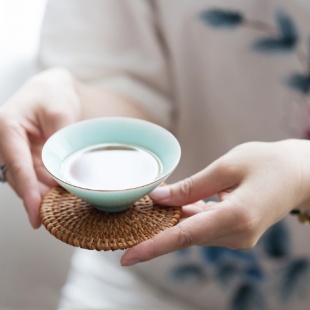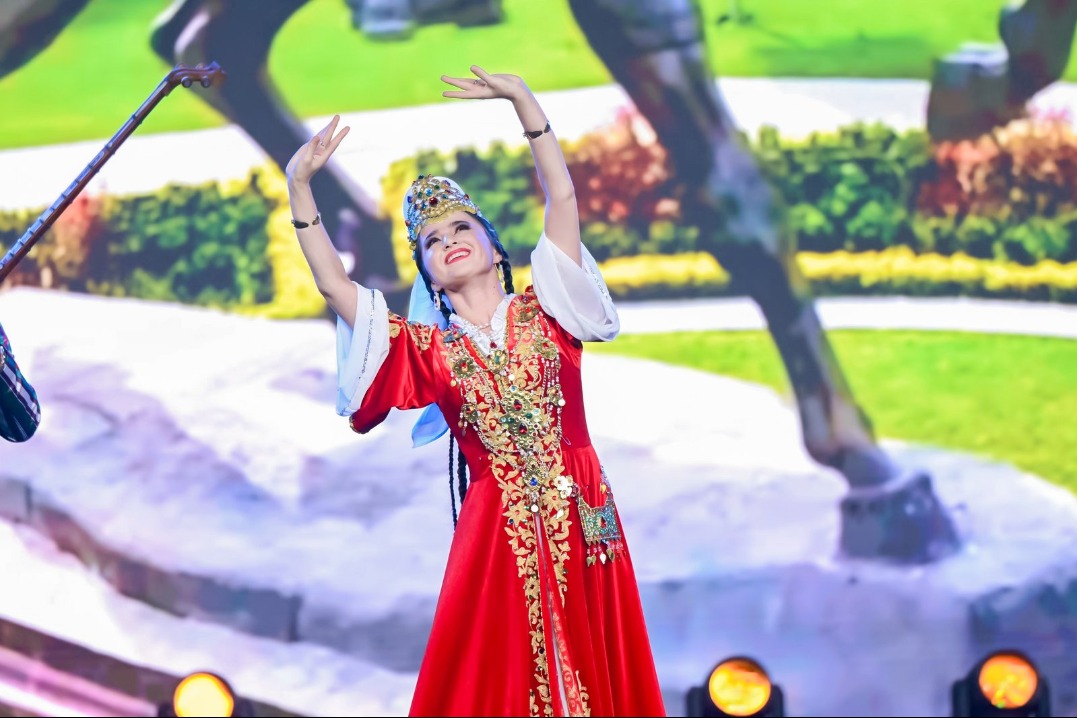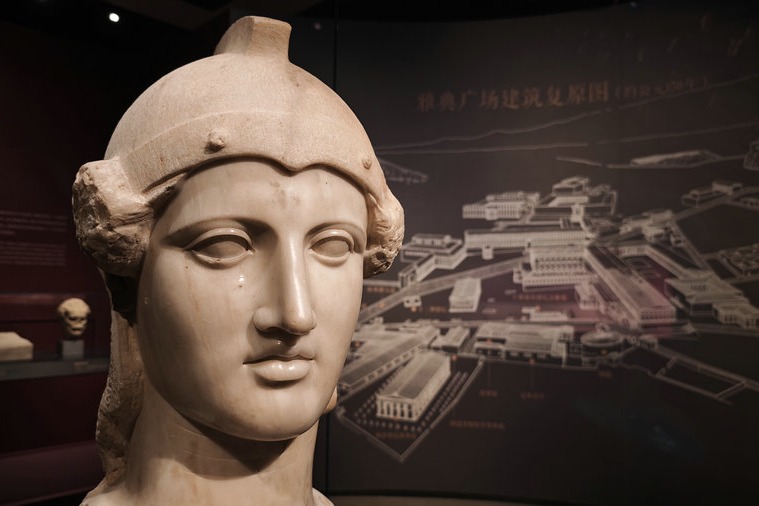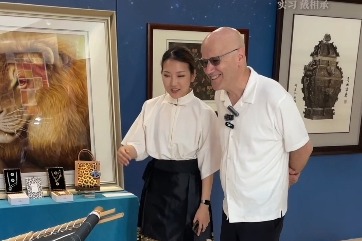Tea culture bridges Chinese mainland and Taiwan


An exquisite porcelain teapot. Several fine ceramic cups. A small vase and a flower. A piece of calligraphy introducing tea making procedures.
These fives things adorn a traditional Chinese tea table. With a touch of Chinese aesthetic, the table is almost an artwork in the form of modern installation.
Another piece was inspired by A Thousand Miles of Rivers and Mountains, a masterpiece by Song Dynasty (960-1279) painter Wang Ximeng. The painting was featured on cups and table flag which were decorated with black mountain-shaped sculptures.
A total of 30 such tables, from both Chinese mainland and Taiwan, were featured at the First Exchange of Tea Culture Between Beijing and Taiwan at Grand Millennium Beijing on June 24.
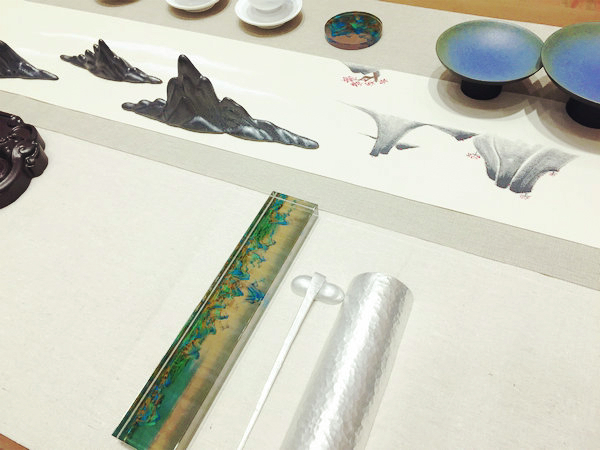
"Tomorrow marks the 30th year since the first time when I visited the Chinese mainland on June 25, 1988. In the past three decades, I have come to mainland 300 times," Fan Zengping, director-general of the Taiwan Chinese Tea Culture Association, said at the event.
The 300 times saw his promotion of Chinese tea culture in both Chinese mainland and Taiwan.
For him, tea has become a mirror of life. Sipping a cup of tea is a way to meditating on life.
"We need to cherish the achievements of exchanges between mainland and Taiwan, and picture a better future for we Chinese people who have the same root," Fan said.

Chen Yunjun, standing director of China International Tea Culture Institute, talked about the differences of tea culture in China and Japan as well as the relation between Chinese tea culture and Zen.
"Japanese tea ceremony is famous for its silent rites, yet only a few people have tea or matcha daily. Most Japanese drink sencha. However, tea is part of Chinese people's everyday life," Chen said.
Quoting Buddhist master Jinghui on tea culture, Chen said the spirit of Chinese tea culture can boil down to four Chinese characters: zheng (正 integrity), qing (清 purity), he (和 harmony) and ya (雅 elegance).
"Our traditional tea culture is an important cultural heritage that connects people in Chinese mainland and Taiwan. We hope it will go on to play bigger role, bridging the two sides closely."
About 100 tea masters and representatives attended the event, sharing the same passion for Chinese tea culture.


